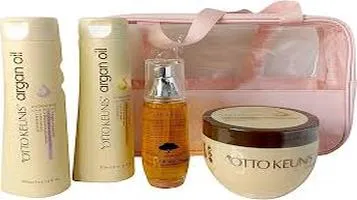Argan Oil: A Comprehensive Review
Argan oil, often referred to as "liquid gold," is a natural oil extracted from the kernels of the argan tree (Argania spinosa), native to Morocco. Rich in essential fatty acids, antioxidants, and vitamin E, it is renowned for its nourishing and moisturizing properties. Argan oil is widely used in cosmetic and personal care products for skin and hair, providing hydration, reducing inflammation, and improving skin elasticity. Its non-greasy texture makes it ideal for all skin types, helping to balance oil production and minimize acne. In addition to its beauty benefits, argan oil is also used in culinary applications, adding a nutty flavor and health benefits to dishes. Sustainable harvesting practices support local Berber communities, making it an ethical choice for consumers.

Argan oil, often referred to as "liquid gold," has garnered a significant reputation in the beauty and skincare industry over the past few decades. Extracted from the kernels of the Argan tree (Argania spinosa) native to Morocco, this oil is lauded for its rich nutrient profile and versatile applications. This review delves into the various aspects of argan oil, including its benefits, uses, and potential drawbacks, to provide a well-rounded perspective on this revered natural product.
Nutrient Profile and Composition
Argan oil is packed with essential fatty acids, primarily oleic and linoleic acids, which are known for their skin and hair health benefits. It also contains high levels of vitamin E (tocopherol), a powerful antioxidant that helps in protecting cells against free radical damage. Additionally, argan oil boasts a variety of phenolic compounds, carotenoids, and squalene, which contribute to its antioxidant, anti-inflammatory, and moisturizing properties.
Skincare Benefits
1. Moisturization: One of the primary reasons argan oil is celebrated in the skincare community is its exceptional moisturizing ability. The high content of fatty acids helps to maintain the skin's natural barrier, preventing moisture loss and keeping the skin hydrated. This makes it particularly beneficial for individuals with dry or flaky skin.
2. Anti-Aging: The antioxidant properties of vitamin E and phenolic compounds in argan oil help combat oxidative stress, which is a significant factor in the aging process. Regular application of argan oil can reduce the appearance of fine lines and wrinkles, promoting a more youthful complexion.
3. Acne Treatment: Contrary to the belief that oils exacerbate acne, argan oil can actually help in managing acne-prone skin. Its anti-inflammatory properties reduce redness and swelling, while its non-comedogenic nature ensures it does not clog pores. Moreover, linoleic acid has been shown to reduce sebum production, which can help in preventing acne breakouts.
4. Healing and Soothing: Argan oil's anti-inflammatory and healing properties make it an excellent remedy for skin conditions such as eczema, psoriasis, and rosacea. It soothes irritated skin, reduces redness, and promotes faster healing of minor cuts and abrasions.
Hair Care Benefits
1. Nourishment and Shine: Argan oil is a popular ingredient in hair care products due to its ability to deeply nourish and add shine. The vitamin E and fatty acids in the oil penetrate the hair shaft, repairing damage and making hair softer and more manageable.
2. Frizz Control: The hydrating properties of argan oil help in taming frizz and flyaways, making it a staple for individuals with curly or unruly hair. A few drops of argan oil can be used as a serum to smooth out hair and add a healthy sheen.
3. Scalp Health: Applying argan oil to the scalp can improve overall scalp health by reducing dryness and flakiness. Its anti-inflammatory properties can also help alleviate conditions like dandruff.
Other Uses
Beyond skin and hair care, argan oil has several other applications. It can be used as a nourishing lip balm, a cuticle oil to strengthen nails, and even as a carrier oil for essential oils in aromatherapy. Additionally, culinary-grade argan oil is used in Moroccan cuisine, valued for its nutty flavor and health benefits.
Potential Drawbacks
While argan oil boasts numerous benefits, it is essential to consider potential drawbacks:
1. Cost: High-quality, pure argan oil can be expensive due to the labor-intensive extraction process and limited geographic area where Argan trees grow. This cost can be a barrier for some consumers.
2. Allergic Reactions: Although rare, some individuals may experience allergic reactions to argan oil. It is advisable to perform a patch test before using it extensively on the skin or hair.
3. Adulteration: The popularity of argan oil has led to the market being flooded with diluted or fake products. Consumers need to ensure they purchase from reputable sources to reap the genuine benefits of pure argan oil.
Conclusion
Argan oil stands out as a multifaceted natural product that offers a plethora of benefits for skin, hair, and overall health. Its rich nutrient profile, coupled with its moisturizing, anti-aging, and healing properties, makes it a valuable addition to any beauty regimen. However, potential users should be mindful of the cost and the importance of sourcing pure, high-quality oil to avoid adulteration. Despite these considerations, the benefits of argan oil far outweigh the drawbacks, solidifying its status as a cherished ingredient in the realm of natural beauty and wellness.






